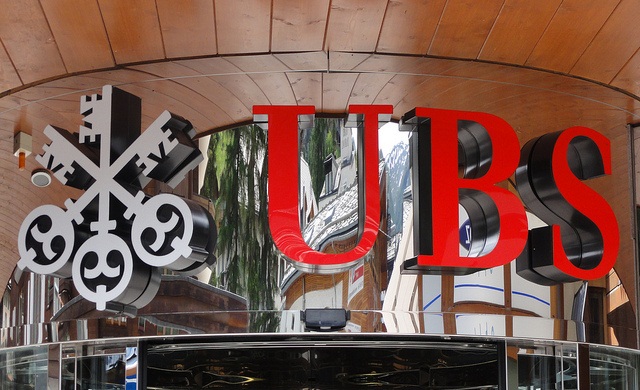Given the events of the news released this morning, you might wonder if UBS stands for Unbelievable Banking Screw-Up.

The traditional round of tea at the Monday morning UBS staff meeting was served iced as the bank got kicked in the knickers with a £29.7 million fine for failing to have adequate controls in place that could have prevented Kweku Adoboli from carrying on his fraudulent trading activities.
In assessing the fine, the FSA said that “UBS failed to take reasonable care to organize and control its affairs responsibly and effectively with adequate risk-management systems, and failed to conduct its business from the London branch with due skill, care, and diligence.”
The £29.7 million fine was 30% less than UBS could have been hit with. UBS gained by taking advantage of FSA policy that rewards choosing to settle early to avoid unnecessarily protracted negotiations.
The FSA has also meted out redress upon unnamed bank officials who were responsible for ensuring that controls were in place and effective. This has been accomplished by clawbacks on executive bonuses and withholding an average of 50% of deferred executive pay. The executive slap on the wrist is worth approximately £34 million.
The irony is that this is not the first time that UBS has been fined for lack of controls. It was fined £8 million in 2009.
Tracy McDermott, director of enforcement and financial crime at the FSA, said: “UBS’s systems and controls were seriously defective. UBS failed to question the increasing revenue of the desk and failed to ensure that there was a corresponding increase in the controls in place over the desk. As a result Adoboli, a relatively junior trader, was allowed to take vast and risky market positions, and UBS failed to manage the risks around that properly. We know from past experience that failures to manage risk properly can cause firms to fail and cause systemic harm.”
The FSA’s list of insufficiencies included both lack of adequate procedures and failure to follow those that were adequate.
The fact is that UBS is a blatant example of the corruption the “regulations” of all sectors of business, but apparently of the the banking system in particular. The root problem is greed, particularly at the upper levels of the company. Publicly the executives and junior executives must pay lip service to the need for standard practices and procedures, partly because, in some cases, the regulations are imposed by third parties, and partly because of PR. A company’s system controls are often publicised as a benefit of doing business with them.
Executives, however, frequently regard controls as restrictions. Therefore, they treat them lightly or even with disdain. They sometimes devise work-arounds or excuses for violating procedures, even to the extent of telling renegade employees that it is alright to overlook a particular procedure now and then. Mind you, they will not tell all the employees, only a select few.
But there is another problem with development of internal systemic procedures. Whilst a system or procedure should be designed for improved performance, output, or customer service and satisfaction, all too often the intention deteriorates into make efficiency the primacy of the procedures and regulations. When internal efficiency – which sounds like a good thing – becomes the reason for regulations and procedures, the demise of the company’s integrity is not far behind. In these frequent cases, efficiency overrides both quality and customer satisfaction.
And there you have a picture of UBS. There is no doubt about it. Kweku Adoboli is a crook. But UBS bears the burden of gross negligence in failing to establish and administer adequate controls to prevent Adoboli’s blatant transgression and, possible, dozens of others, small by scale, but equally as crooked.


 Hot Features
Hot Features












